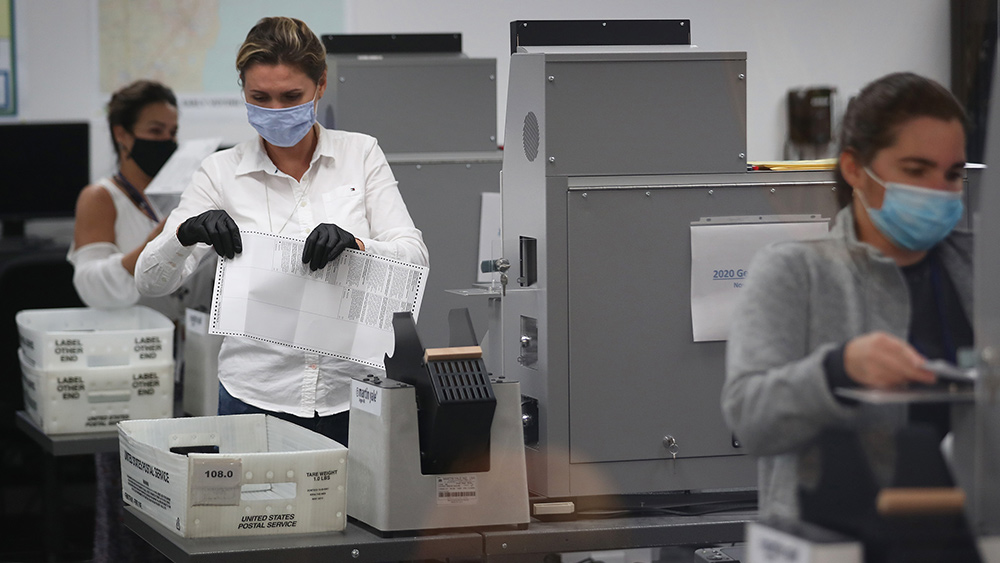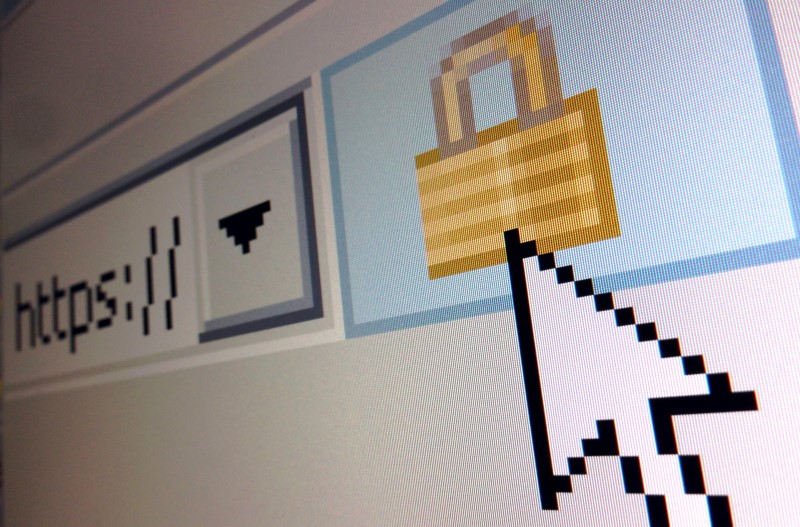Analysts claim Dominion’s server connected to Iran and China
12/01/2020 / By Franz Walker

A former military intelligence analyst who conducted a digital forensic analysis into the 2020 elections claims to have “unambiguous evidence” that Dominion Voter Systems servers were accessible to “rogue actors, such as Iran and China.”
The analyst, whose name was redacted, was a former electronic intelligence analyst under the 305th Military Intelligence Battalion. They made the claim in an affidavit accompanying attorney Sidney Powell’s lawsuit against Michigan officials.
Servers were reportedly accessed in China and Iran
Powell’s complaint, which she filed on Wednesday, Nov. 25 against Michigan Gov. Gretchen Whitmer, Secretary of State Jocelyn Benson and the Michigan Board of State Canvassers, cites the affidavit as purporting to show that “the Dominion software was accessed by agents acting on behalf of China and Iran in order to monitor and manipulate elections, including the most recent U.S. general election in 2020.”
This assertion is expanded upon by a separate complaint in Georgia. This one claims that Dominion “neglectfully allowed foreign adversaries to access data” through the use of ” servers and employees connected with rogue actors and hostile foreign influences combined with numerous easily discoverable leaked credentials.”
This allowed those foreign actors to “monitor and manipulate elections, including the most recent one in 2020.”
The analyst claims to have “extensive” experience as a “white hat” hacker who has worked with some of “the top election specialists in the world.” They said that they had scanned Dominion’s network nodes and found a number of interrelationships with foreign entities. These include access to the company’s server by a network from Hunan, China. Another forensic review confirmed access from an Iranian IP address.
“These scanning behaviors showed that foreign agents of aggressor nations had access to U.S. voter lists, and had done so recently,” the analyst claimed.
According to the analyst, their findings show a “complete failure” by Dominion to provide “basic” cybersecurity.
“This is not a technological issue, but rather a governance and basic security issue: if it is not corrected, future elections in the United States and beyond will not be secure and citizens will not have confidence in the results,” the analyst concluded.
Dominion denies claims of fraud
On the same day that Powell filed the Michigan lawsuit that contained the analyst’s affidavit, Dominion issued a statement saying that the allegations against the company and its voting systems were “unfounded.”
“Unfounded allegations being made against the company and its voting systems,” the company stated.
“Dominion voting systems are designed and certified by the U.S. government to be closed and do not rely on network connectivity,” it added. “Dominion’s tabulators also do not have exposed USB or other memory ports.”
In a statement on its website, the company pointed to a joint statement by the Department of Homeland Security‘s Cybersecurity & Infrastructure Agency (CISA) that stated: “There is no evidence that any voting system deleted or lost votes, changed votes, or was in any way compromised.”
CISA had also previously stated that it was not possible for any bad actor to change the election results without detection.
It also referred people to the Michigan Secretary of State’s office’s fact check page which supposedly debunks “false or erroneous” claims about voting in Detroit and other counties in the state.
But in her lawsuit, Powell alleges that not only were “hundreds of thousands of illegal, ineligible, duplicate, or purely fictitious ballots” counted in the polls but that it was Dominion’s software that helped facilitate the fraud. (Related: Powell lawsuit in Michigan alleges ‘Dominion computer fraud’ and ‘Illegal conduct’ by election workers.)
She said that the company used software designed by Smartmatic Corporation, which became Sequoia in the United States. She cited how Smartmatic supposedly helped the Venezuelan government rig its elections by secretly switching votes.
Dominion responded by stating that it had no ties to Smartmatic and did not use the latter’s software.
Follow VoteFraud.news for more on the latest investigations into the 2020 election.
Sources include:
CourtListener.com 1 [PDF]
CourtListener.com 2 [PDF]
Submit a correction >>
Tagged Under:
cybersecurity, Dominion Voting Systems, election, election fraud, elections, Gretchen Whitmer, Michigan, vote fraud
This article may contain statements that reflect the opinion of the author
RECENT NEWS & ARTICLES
COPYRIGHT © 2017 BigTech.news
All content posted on this site is protected under Free Speech. BigTech.news is not responsible for content written by contributing authors. The information on this site is provided for educational and entertainment purposes only. It is not intended as a substitute for professional advice of any kind. BigTech.news assumes no responsibility for the use or misuse of this material. All trademarks, registered trademarks and service marks mentioned on this site are the property of their respective owners.




















